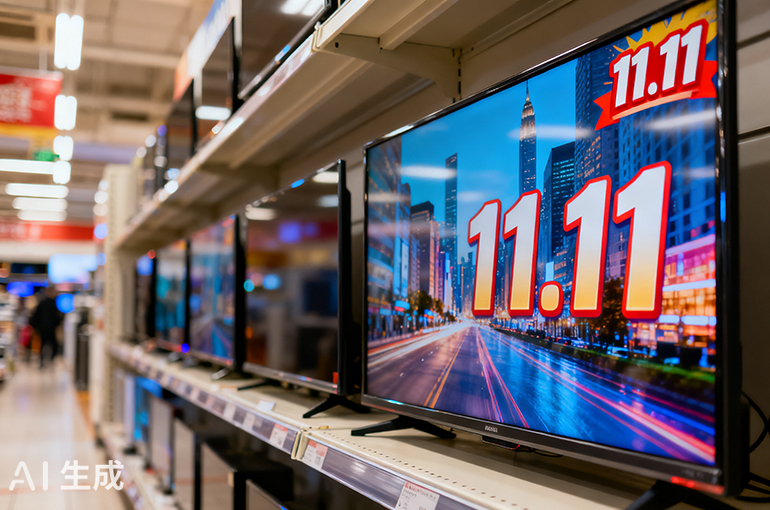 Chinese Appliance Makers Try Trading Price for Market Share Over Double 11 Event, Report Says
Chinese Appliance Makers Try Trading Price for Market Share Over Double 11 Event, Report Says(Yicai) Oct. 23 -- Chinese home appliance manufacturers are cutting prices through “corporate subsidies” to win market share during this year's Double 11 shopping festival, while others are trying to retain buyers by improving service experience, according to a new market research report.
It will be hard for China’s home appliances market to beat last year’s Double-11 performance during this year’s event, the report by AVC said. Thanks to the full implementation of national subsidies, sales of almost all appliance categories surged a year ago, raising this year’s base of comparison, it said.
Since a large part of this year’s national subsidy funds were used up in the first half, both the size and product coverage of grants during this Double-11 have shrunk, making it even harder to replicate strong growth and causing some category sales to decline year on year, AVC said.
A distributor told Yicai that after Xiaomi slashed its air conditioner prices and Gree Electric Appliances, which declined to cut them during mid-year e-commerce promotions in June, rolled out lower-priced models, many smaller AC brands launched reductions to capture market share, pushing down prices to last year’s subsidized levels.
Across all sales channels, unit sales and revenues for air-cons, fridges, washing machines, dryers, and televisions will all fall during this Double-11, though washing machines and dryers may see gentler declines, AVC said.
A parallel trend can be seen in cleaning and small home appliances. “It feels like there are no new tricks in the Double 11 competition anymore,” a kitchen appliance supplier’s marketing director told Yicai. “It’s all just a price war!”
Price competition among e-commerce platforms is also fierce, the person added.
Through internal cost cuts and efficiency improvements, Royalstar Group has cut production and labor expenses by about 5 to 10 percent, Director of Customer Service Zhang Yong told Yicai. The firm plans to pass these savings directly to end consumers in the form of price cuts, Zhang added.
To attract buyers, some appliance suppliers are trying to attract buyers by adding value-added services, Gan Jianguo, general manager of HarmonyOS Connect Meipont Intelligent Air Conditioner, told Yicai. His company is offering a 10-year warranty and free installation for products bought during Double 11, Gan said.
Others are eliminating non-essential smart features to lower production costs and boost competitiveness. For instance, leading kitchen appliance brand Fotile has launched a range hood with fewer extras in collaboration with online retailer JD.Com, thereby lowering the price to tempt more buyers.
With shrinking room for price cuts, major brands like Midea and Hisense Home Appliances Group are trialing more efficient product warehousing and distribution models to help retailers adjust logistics, improve user experience, and win market share, according to Liu Wenjuan, general manager of offline retailer Baoji Yongsheng Youxuan Home Appliances.
As last year’s base of comparison was high and national subsidy funds are now limited, many appliance categories will struggle to grow over this Double-11, said Peng Xiandong, GM of GfK China's large home appliances division. But platform and supplier promotions should still spark some consumer demand, Peng noted.
Peng expects competition in the home appliances industry to shift increasingly toward premium products and service upgrades.
Editors: Tang Shihua, Martin Kadiev